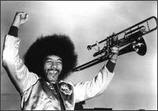Lewis never resolves the dispute between Lebed and the SEC, which is what makes the article so compelling. Instead of presenting a final picture, Lewis describes the process of searching for the information. The reader comes across the surprising bits as Lewis did, with a full context that illuminates all the of the contradictory aspects of the case against Lebed.
Dynamite! I love the transparency of this piece. The journalist finally says: Yes, I am biased, but this is where that bias came from. Do with it what you will.
My favorite part of the article is Lewis' elaborate description of his interview with Arthur Levitt, Chairman of the SEC. Lewis does something unusual: he includes his questions for Levitt. With access to the whole dialogue, the reader better understands the source of Lewis' confusion. It is easy for the reader to be in Lewis' shoes, watching Levitt squirm at seemingly soft-ball questions. At one point, Levitt tries to figure out whose side Lewis is on, and Lewis graces us with his inner-monologue:
"What do you think?" he asked.Well, I had my opinions. In the first place I had been surprised to learn that it was legal for, say, an author to write phony glowing reviews of his book on Amazon but illegal for him to plug a stock on Yahoo! just because he happened to own it. I though it was--to put it kindly--misleading to tell reporters that Jonathan Lebed had used "twenty fictitious names" when he had used four AOL e-mail addresses and posted exactly the same message under each of them so that no one who read them could possibly mistake him for more than one person. I further though that without quite realizing what had happened to them, the people at the SEC were now lighting out after the very people--the average American with a bit of money to play with--whom they were meant to protect.Finally, I thought that by talking to me or any other journalist about Jonathan Lebed when he didn't really understand himself what Jonathan Lebed had done, the chairman of the SEC displayed a disturbing faith in the media to buy whatever he was selling.But when he asked me what I though, all I said was, "I think it's more complicated than you think."

No comments:
Post a Comment